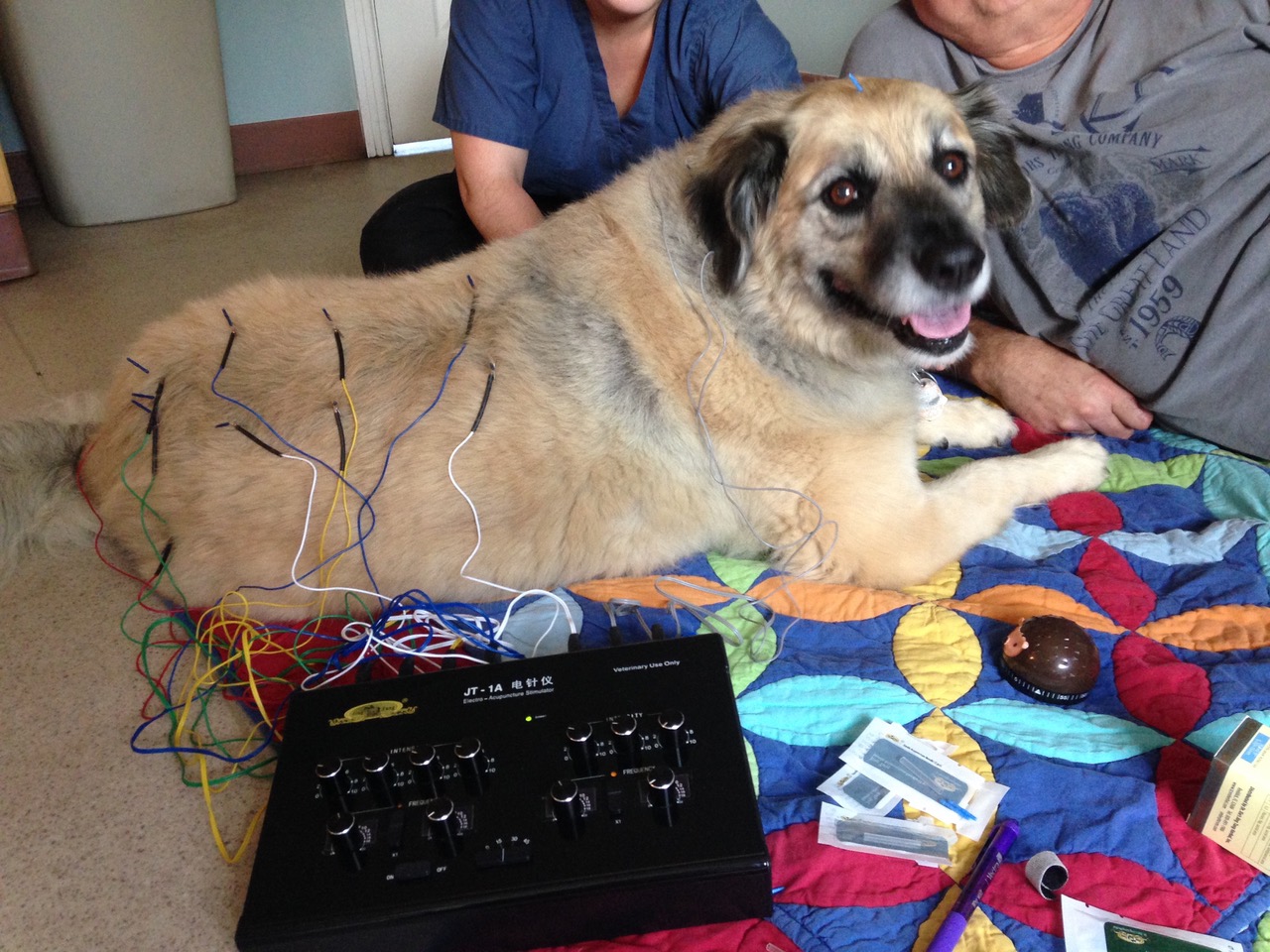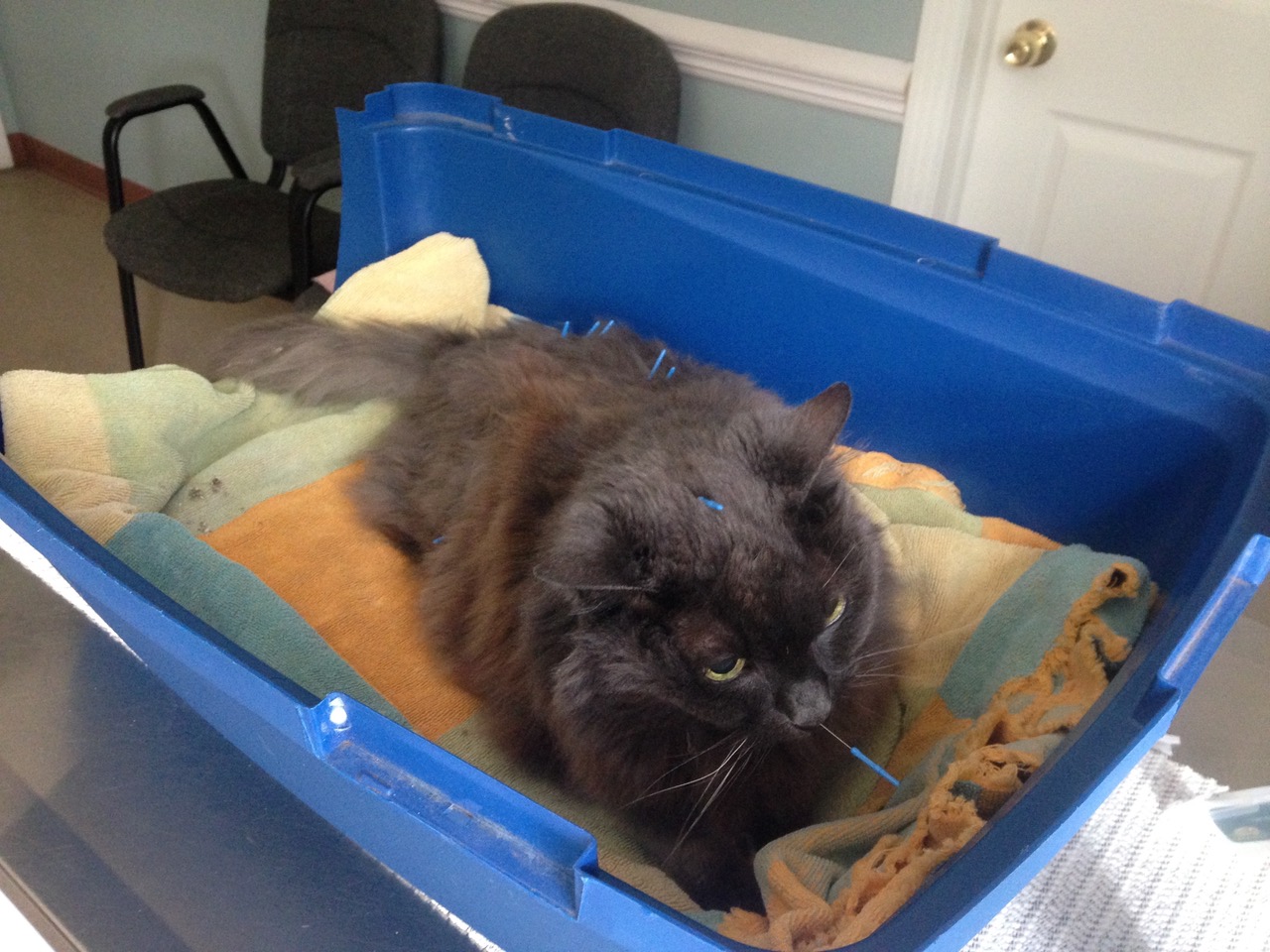Colorado Animal acupuncture
Acupuncture for animals involves the insertion of fine solid needles into specific points on the body to cause a desired healing effect. Acupuncture works by stimulating the nervous system, endocrine system and immune system in the body.
Veterinary acupuncture can be successfully combined with conventional veterinary medicine to enlist the patient’s natural healing mechanisms. An integrative approach for many patients can help reduce the duration of hospitalization and improve outcomes. It can also improve quality of life of many of our senior patients with chronic debilitating conditions by improving mobility and reducing pain. It can replace Western medications when animals cannot take them due to kidney, liver or stomach disease. Acupuncture can support and improve organ disease when Western medicine has little to offer.
Animal Acupuncture Benefits
Animal Neurological Disease: Seizures, Geriatric Dementia (CCDS), Meningioencephalitis, Vestibular Disease, Cranial Nerve Disease (Masticatory Myositis, Optic Neuritis), Intervertebral Disc Disease (IVDD), Fibrocartilagenous Emboli, Periferal Nerve Disease (Brachial Plexus Avulsion), Degenerative Myelopathy and EPM (Equine Protozoal Myolitis).
Animal Musculoskeletal Disease: Arthritis (Hip Dysplasia, Elbow Dysplasia, Spinal Arthritis, Knee Arthritis), Tendon sprains and partial tears (Cranial Cruciate Injuries, Achilles Injuries), Luxating Patellas, Geriatric Hind End Weakness and Laminitis.
Animal Gastrointestinal Disease: Inflammatory Bowl Disease (IBD), Anorexia, Vomiting, Diarrhea, Constipation, Megacolon, Gastric Reflux and Equine Colic.
Animal Endocrine Disease: Hypothyroidism, Hyperthyroidism, Diabetes, Insulin Resistance and Cushings Disease.
Other Animal Diseases: Skin Allergies, Feline Asthma, Equine COPD, Cancer, Liver Disease, Chronic Renal Failure, FLUTD, Urinary Incontinence, Chronic Infections, Uveitis and Chronic Corneal Ulcers.


